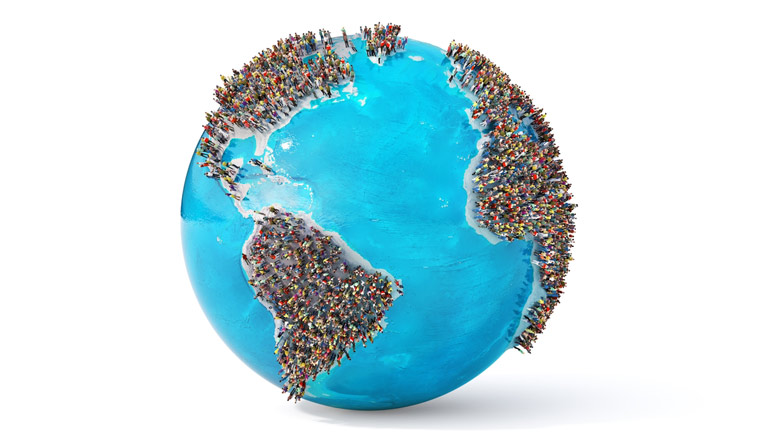In a study led by the University of Oxford, a new avenue for addressing global challenges has emerged. The research, published in the prestigious Royal Society Open Science, unveils the potential of shared life experiences and biology in fostering psychological bonds with humanity at large, thus igniting a collective drive for global cooperation and proactively addressing pressing global issues.
Lukas Reinhardt, the leader of the Global Cohesion Lab at the Centre for the Study of Social Cohesion (CSSC) at the University of Oxford, emphasized the significance of this research in the current global context, stating, "Us-vs-them thinking is on the rise in many places all over the world, exacerbating conflicts and complicating finding solutions for pressing global problems. Our research, however, suggests that it is possible to foster a shared global identity which could facilitate cooperation on the global level. The practical implications of our findings for policymakers, NGOs, politicians, and activists are wide-ranging."
The study, involving over a thousand participants from the United States, delved into the impact of shared biology and shared experiences with individuals worldwide in nurturing bonds with humanity at large and propelling pro-social action on a global scale.
One compelling aspect of the study explored the influence of appeals to globally shared biology on bonding with humanity at large. Participants were exposed to a TED Talk by journalist A. J. Jacobs, illuminating the concept of common ancestry among all humans, portraying us as one large human family. The results revealed a significant strengthening of psychological bonds with humanity at large among those who watched the video, compared to a control group, indicating a profound impact on social connectivity. Notably, participants who watched the video also exhibited heightened social bonds with individuals supporting opposing political affiliations, underscoring the potential for bridging societal divides.
Furthermore, the study delved into the role of globally shared experiences in reinforcing social bonds on a global scale. Focusing on the universal experience of motherhood, the researchers demonstrated that mothers felt stronger bonds with women from diverse backgrounds when sharing motherhood experiences. This insight underscores the power of shared experiences in transcending geographical and cultural boundaries to foster a sense of global kinship.
The strength of social bonds was measured using a visual tool depicting overlapping circles, symbolizing the participant and the broader group, whether humanity at large or the global community of mothers. This innovative approach provided a tangible representation of the participants' relationship with the groups, reflecting the depth of their social bonds.
Notably, the reported psychological bonding with humanity at large was intricately linked to measures of pro-social action. Through a measure derived from behavioral economics, participants were tasked with indicating how they would allocate a sum of money between members of different groups in hypothetical scenarios. This insightful approach shed light on the participants' inclination towards various groups and predicted real-world behavior with remarkable accuracy.
Professor Harvey Whitehouse, Director of the CSSC at the University of Oxford and co-author of the study, highlighted the transformative implications of the research, stating, "At the CSSC we have been studying for years these two pathways to strong forms of group cohesion – based on shared biology and shared experiences – but this is the first time we have shown that we can create powerful bonds uniting all of humanity. If we can do this in a simple experiment, we can develop far more powerful methods of motivating action on global problems in the future."
He further emphasized the potential impact of acknowledging our shared humanity in addressing a spectrum of global challenges, from intergroup conflicts to extreme poverty and the climate crisis, heralding a new era of collective action and global progress.


